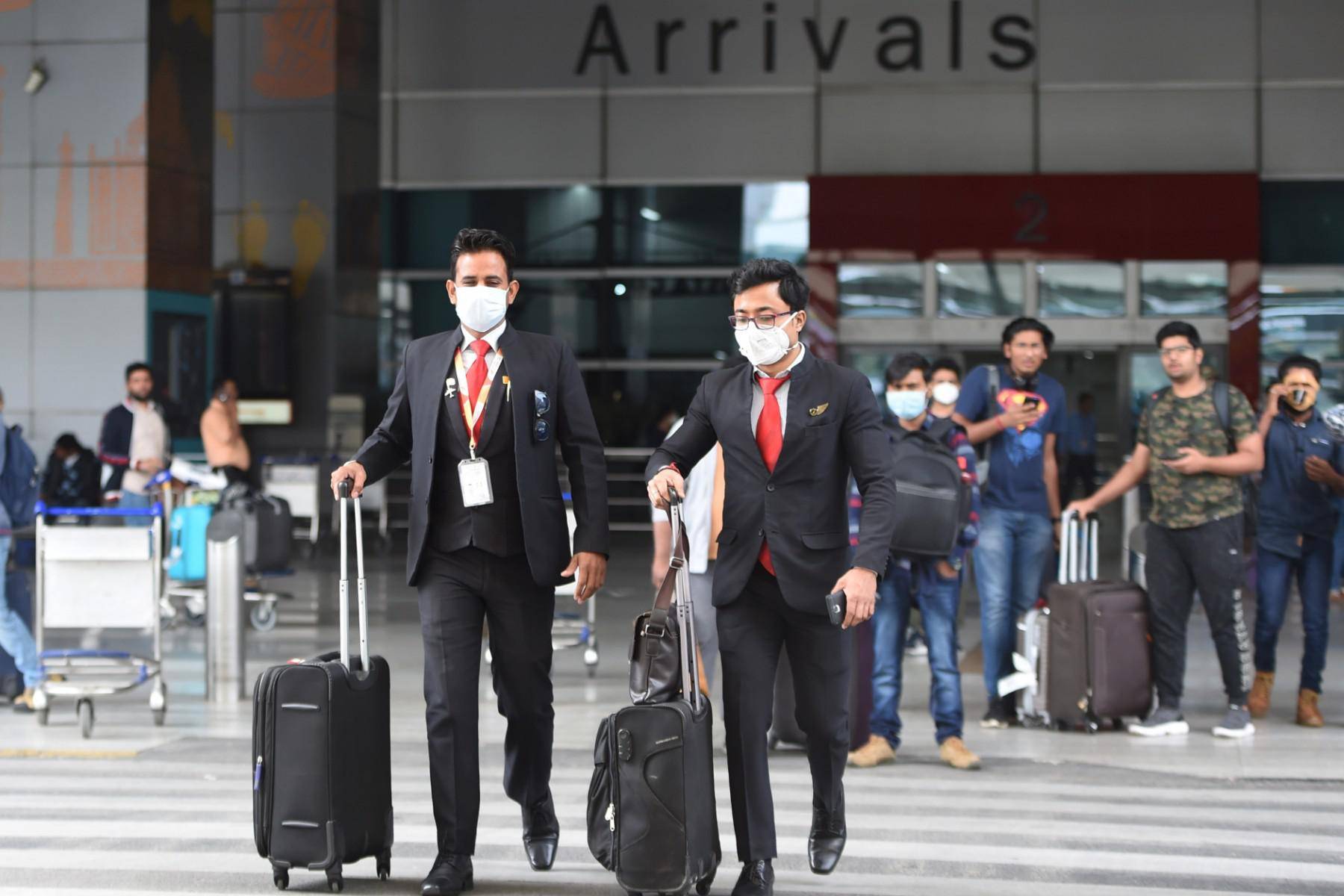[ad_1]
The Ministry of Health and Family Welfare (MoHFW) of India stated that India has revised the travel agreement for inbound international passengers on October 20.
The revised travel agreement will take effect from October 25th.
Although there are no major changes for travelers from the UAE, India has created a national classification based on the epidemiology of Covid-19 in these countries.
The Ministry of Health stated that adding specific countries to the list is a dynamic activity based on the ever-changing global pandemic.
The following is a breakdown of the new regulations:
Country Classification
Passengers arriving in India are divided into two categories: travelers from “countries at risk” and travelers from countries “excluding those listed as countries at risk.”
Passengers from high-risk countries need to undergo additional testing at the airport. These countries are: European countries, including the United Kingdom, South Africa, Brazil, Bangladesh, Botswana, China, Mauritius, New Zealand and Zimbabwe.
“Some countries and India have reached an agreement on mutual recognition of vaccination certificates for vaccines recognized by countries or by the World Health Organization (WHO).
“Similarly, some countries currently do not have such agreements with India, but they exempt Indian citizens from being fully vaccinated with nationally recognized or WHO-approved vaccines,” the ministry said.
It explained: “On the basis of reciprocity, travelers from all countries that provide Indians with exemption from quarantine can get a certain amount of relaxation upon arrival.”
These categories of countries are called Class A countries, such as the United Kingdom, France, Germany, Nepal, Belarus, Lebanon, Armenia, Ukraine, Belgium, Hungary, and Serbia.
Travel rules on arrival
Before you travel
> Regardless of the country classification, all passengers should submit a self-declaration form on the Air Suvidha online portal (www.newdelhiairport.in) before booking travel.
> Passengers must upload a negative Covid-19 RT-PCR report. The test should be performed within 72 hours before departure.
> The airline ensures that a negative RT-PCR report is provided before allowing passengers to board the aircraft
> MoHFW stated that each passenger should also submit a statement on the authenticity of the report, and if other circumstances are discovered, they will be liable for criminal proceedings.
> Passengers should also make a commitment to the Ministry of Civil Aviation through the relevant airlines on the Air Suvidha portal or other means before arriving in India. The promise should state that they will abide by the decisions of the relevant government authorities and conduct family isolation/self-health monitoring when necessary.
Arrival rules
> The heat screening will be carried out by health officials at the airport. The self-declaration form filled out online should be presented to the airport health staff.
> Passengers who are found to be symptomatic during the screening should be quarantined immediately and sent to a medical institution in accordance with hygiene procedures. If the test result is positive, their contacts should be identified and managed according to the prescribed protocol.
Quarantine and testing:
> If passengers are from a category A country and have been fully vaccinated, they should be allowed to leave the airport and their health should be monitored by themselves within 14 days of arrival.
> If part (one dose)/not vaccinated: Travelers need: Submit a sample on arrival for post-arrival Covid-19 test, stay at home for 7 days, and retest in India on the eighth day of arrival, if the result is If they are negative, they will further self-monitor their health status in the next 7 days.
> If travelers are from countries other than those covered by Category A, they must accept the above measures regardless of their Covid-19 vaccination status.
Please also read:
>> India releases revised international entry guidelines
>> India-UAE flights: Passenger traffic has improved after restrictions were lifted
Passengers from countries that do not include risk will be allowed to leave the airport and should self-monitor their health within 14 days of arrival. MoHFW explained that this applies to travellers from all countries, including countries that also have reciprocal arrangements for mutual acceptance of the Covid-19 vaccine approved by the WHO.
Those travellers undergoing home quarantine or self-monitoring, if they have symptoms suggesting Covid-19 or test positive for Covid-19 when they are retested, they will immediately self-quarantine and report to the nearest medical institution.
[ad_2]
Source link

